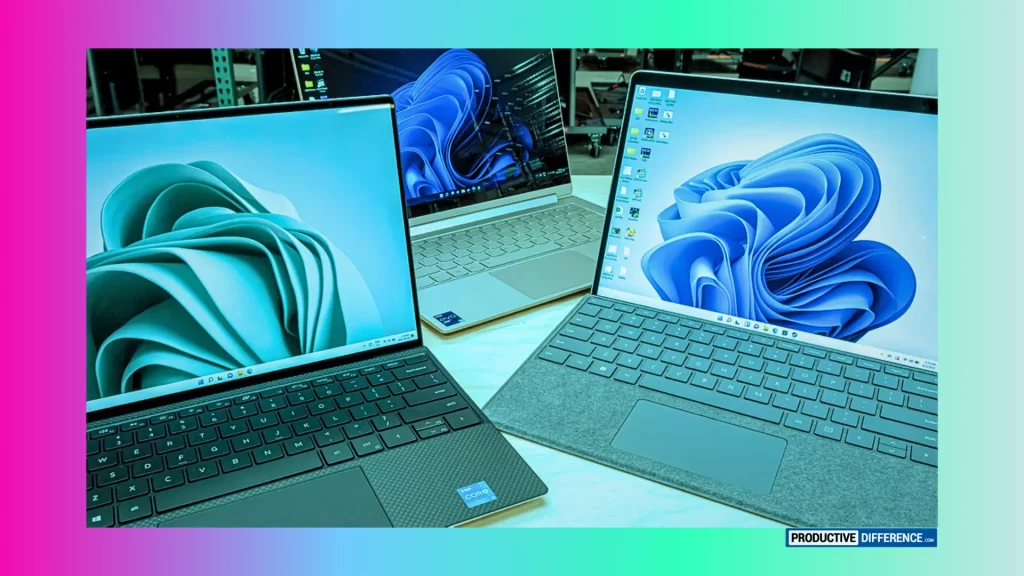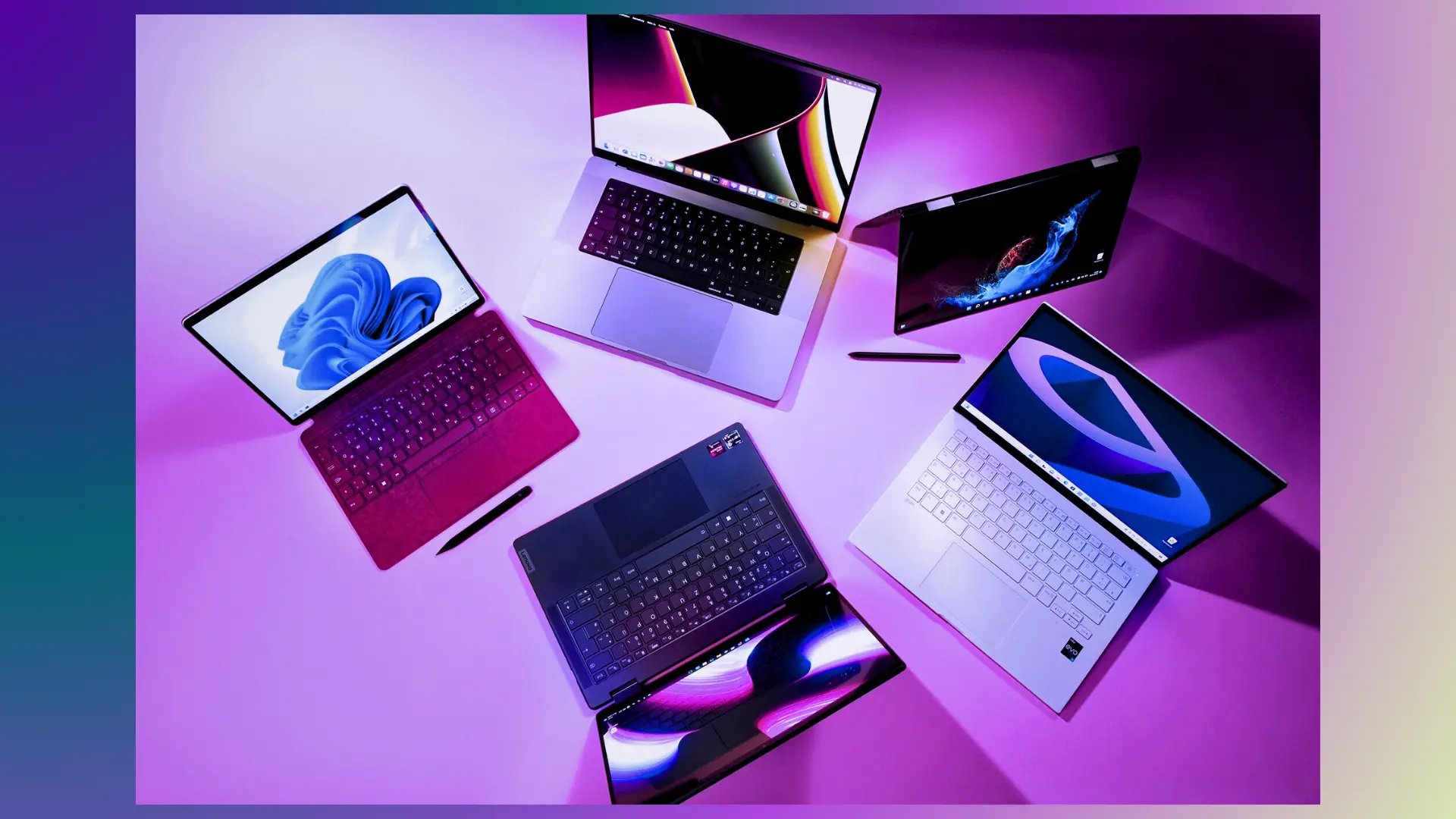The Perfect Laptop for Your Needs
When it comes to buying a laptop, there are numerous factors that customers need to consider before making their purchase.
With so many options available in the market, it can be overwhelming to pick the right laptop that fits your needs and budget. In this article, we will discuss a detailed laptop buying guide for customers.

Let’s jump into the topic:
Purpose
The first factor to consider when buying a laptop is the purpose of use.
Are you looking for a laptop for work or entertainment?
Do you need a laptop for gaming or content creation?
Depending on your usage, you can choose between a business laptop, a gaming laptop, or an ultrabook.
Operating System
The operating system is another crucial factor to consider when buying a laptop. The most popular operating systems are Windows, MacOS, and Chrome OS.
Each OS has its own set of advantages and disadvantages. Windows is the most versatile and compatible, while MacOS offers a seamless user experience with excellent performance. Chrome OS is ideal for users who primarily use web-based applications.
Processor
The processor is the brain of a laptop, and it determines how fast and efficient your device will be. When considering a processor, look for one with a higher clock speed, more cores, and higher cache memory.
Intel and AMD are the two major processors available in the market. Intel processors are known for their superior performance, while AMD processors offer better value for money.
RAM
RAM or Random Access Memory is responsible for multitasking and running multiple applications simultaneously.
A higher RAM leads to smoother performance and faster processing speed. Look for laptops with at least 8 GB of RAM, although 16 GB is recommended for heavy usage.
Storage
Storage is where all your files and data are stored. Laptops come with two types of storage – Hard Disk Drive (HDD) and Solid State Drive (SSD). HDDs are slower but offer larger storage space, while SSDs are faster, more durable, and more expensive.
For faster boot times and application loading, opt for laptops with SSD storage.
Display
The display is an essential factor to consider when buying a laptop. Higher-resolution displays offer better image clarity and color accuracy.
Look for laptops with at least Full HD (1920 x 1080) resolution. If you need a laptop for content creation or gaming, consider laptops with a higher refresh rate and lower response time.
Graphics Card
Graphics cards are responsible for rendering images and videos on your laptop. Integrated graphics cards are suitable for basic usage such as browsing, email, and office work.
However, for gaming and content creation, a dedicated graphics card is recommended. Nvidia and AMD are the two major graphics card manufacturers in the market.
Battery Life
Battery life is an important factor to consider when buying a laptop. Look for laptops with a battery life of at least 8 hours for optimal performance and portability. For users who travel frequently or work remotely, choose laptops with longer battery life.
Ports and Connectivity
Ports and connectivity are crucial factors to consider when buying a laptop. Look for laptops with a variety of ports such as USB Type-C, HDMI, and Ethernet for seamless connectivity. For wireless connectivity, look for laptops with Bluetooth and Wi-Fi capabilities.
Price
Price is always a crucial factor to consider when buying a laptop. Set a budget based on your needs and stick to it.
Determine which features are essential and prioritize them over non-essential features. Look for laptops that offer good value for money and do not compromise on quality.
Besides, a laptop is an essential device in today’s digital age. When buying a laptop, consider its purpose, operating system, processor, RAM, storage, display, graphics card, battery life, ports, and price. With these factors in mind, customers can make an informed decision when purchasing a laptop that suits their needs and budget.
When it comes to buying a laptop, customers need to take various factors into account. One of the first things to consider when purchasing a laptop is its intended purpose. Some people need a laptop for work or school, while others may require a device for entertainment or gaming.
Business laptops are usually designed for basic office use and come with features such as long battery life, durability, and compatibility with business software. Gaming laptops, on the other hand, are equipped with high-performance components such as dedicated graphics cards, faster processors, and more RAM.
Another critical factor to consider when purchasing a laptop is the operating system (OS). The three most common operating systems available in the market are Windows, MacOS, and Chrome OS. Windows is the most popular operating system and offers great versatility and compatibility with various software.
MacOS is exclusive to Apple devices and provides a seamless user experience with excellent performance. Chrome OS, which can be found on Chromebooks, is ideal for users who primarily use web-based applications.
A laptop’s processor is another crucial element that impacts its overall performance. A processor’s clock speed refers to how fast it can execute commands, with higher numbers indicating faster performance.
Processors also have different numbers of cores, with quad-core being the most common. Additionally, a larger cache memory allows the processor to retrieve frequently-used data more quickly.
Intel and AMD are the two major processor manufacturers in the market, with Intel traditionally offering better performance and AMD providing better value for money.
RAM, or Random Access Memory, is responsible for multitasking and running multiple applications simultaneously.
More RAM leads to smoother performance and faster processing speed. Laptops should come with at least 8 GB of RAM, although 16 GB is recommended for heavy usage.
Storage is where all your files and data are stored. Two types of storage are available on laptops – Hard Disk Drive (HDD) and Solid State Drive (SSD).
HDDs offer larger storage space but are slower, while SSDs are faster, more durable, and more expensive. For faster boot times and application loading, opt for laptops with SSD storage.
The display is another essential factor to consider when purchasing a laptop. Higher-resolution displays offer better image clarity and color accuracy.
Laptops should come with at least Full HD (1920 x 1080) resolution. If you need a laptop for content creation or gaming, consider laptops with a higher refresh rate and lower response time.
Graphics cards are responsible for rendering images and videos on your laptop. Integrated graphics cards are suitable for basic usage such as browsing, email, and office work.
However, for gaming and content creation, a dedicated graphics card is recommended. Nvidia and AMD are the two major graphics card manufacturers in the market.
Battery life is an important factor to consider when buying a laptop, especially if you intend to use it on the go. Look for laptops with a battery life of at least 8 hours for optimal performance and portability.
For users who travel frequently or work remotely, choose laptops with longer battery life. Ports and connectivity are also crucial factors to consider when buying a laptop. Look for laptops with a variety of ports such as USB Type-C, HDMI, and Ethernet for seamless connectivity.
For wireless connectivity, look for laptops with Bluetooth and Wi-Fi capabilities.
Price is always a crucial factor to consider when buying a laptop. Set a budget based on your needs and stick to it. Determine which features are essential and prioritize them over non-essential features. Look for laptops that offer good value for money and do not compromise on quality.
Purchasing a laptop involves considering multiple factors, including its intended purpose, operating system, processor, RAM, storage, display, graphics card, battery life, ports, and price.
By taking these factors into account, customers can make informed decisions when purchasing a laptop that suits their needs.

